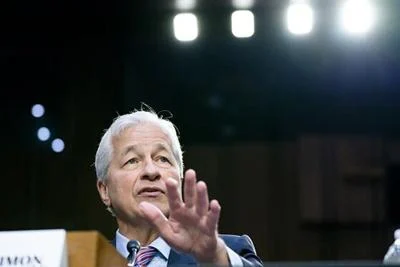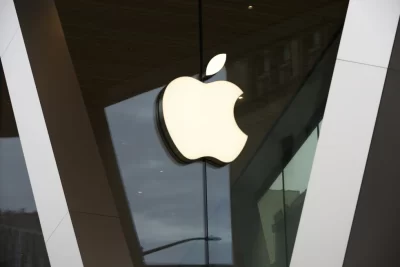
PMorgan Chase’s third-quarter profit soared 35% from last year, fueled by a rapid rise in interest rates, but the bank’s CEO, Jamie Dimon, issued a sobering statement about the current state of world affairs and economic instability.
“This may be the most dangerous time the world has seen in decades,” Dimon wrote in the bank’s earnings statement.
Dimon laid out a laundry list of major issues: the Russia-Ukraine War, the new war between Israel and the Palestinians in Gaza, high levels of government debt and deficits, high inflation, as well as the tight labor market, where worker demands for increased wages have led to high-profile strikes in manufacturing and entertainment.
“While we hope for the best, we prepare (JPMorgan) for a broad range of outcomes so we can consistently deliver for clients no matter the environment,” he said, adding that these conflicts could disrupt global trade once again similar to what happened in Ukraine in early 2022 or after the COVID-19 pandemic.
Dimon often weighs in on global and economic issues that go beyond the scope of banking. He’s often seen as the banker that Washington and global leaders can turn to for advice, solicited or unsolicited. His comments are likely to reverberate through Washington and Corporate America.
In a call with reporters, Dimon said he was in regular contact with his major competitors on Wall Street regarding the geopolitical and economic situation.
Despite the uncertainties, the bank remains optimistic on both the U.S. consumer and the U.S. economy. Jeremy Barnum, the bank’s chief financial officer, said the bank was not observing any “acute pain” in consumer’s finances from higher interest rates so far, although it is seeing higher levels of delinquencies and charge offs in its credit card portfolios.
JPMorgan reported a profit of $13.15 billion, up from $9.74 billion in the same period a year earlier. On a per-share basis, profit rose to $4.33 a share from $3.12 a share a year earlier. The result beat analysts’ forecasts, which called for a profit of $3.95 a share, according to FactSet. JPMorgan shares rose 3.6% in late-morning trading on Wall Street.
The bank is no longer forecasting a recession for the U.S. economy, saying instead that the Federal Reserve’s higher interest rate policy to combat inflation will successfully result in what has been referred to as a “soft landing,” where inflation slows and economic activity cools, but economic growth doesn’t contract.
JPMorgan is also currently integrating First Republic Bank into its operations, after buying that bank earlier this year when it failed during a banking panic in the spring. JPMorgan earned roughly a billion dollars in profit from the First Republic division.
Total revenues in the July-September quarter were $39.87 billion, up from $32.7 billion a year ago. That was largely driven by higher interest rates, which has allowed JPMorgan to charge customers significantly higher amounts of interest on loans compared to a year ago.
Two other big Wall Street banks reported their results, which both showed Wall Street earning hefty profits as consumer kept spending and putting more and more expenses on their credit cards.
Wells Fargo & Co. said third-quarter profit rose to $5.77 billion, or $1.48 a share, from $3.59 billion, or 86 cents a share a year ago. Earnings, adjusted for pretax gains, were $1.39 per share, above analyst estimates of $1.25 per share, according to Zacks Investment Research.
The California bank’s net interest income rose 8% from a year ago to $13.11 billion, although that figure was little changed from the second quarter. Wells Fargo set aside an additional $333 million to guard against potential losses on commercial real estate loans. Its shares rose 3.7%.
Citigroup reported a profit of $3.55 billion, up a modest 2% from a year earlier, or $1.63 a share. The bank is currently going through a restructuring and winding down some less profitable parts of the financial conglomerate’s business, which impacted the bank’s profits this quarter. Citi shares gained 3.4%.






